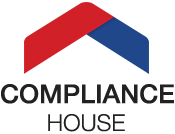Compliance House
Compliance & Trust Offices
For the trust offices, compliance means the compliance with or the compliance management of the purpose of the applicable laws and regulations in the context of financial and integrity supervision. The emphasis here is on the supervised institution’s own responsibility to ensure the integrity of its business operations, which includes internalising the purpose of the legal obligations and setting up a compliance programme or similar internal regulations. This involves not only administrative obligations, but also drawing up your own checklist which needs to be consulted for each client and transaction acceptance. This also involves the use of risk profiles. After all, trust offices have an active role as gatekeepers and have to scrutinise each new client carefully before granting access to the financial market.
Curious about how your company is doing in the context of compliance and what Compliance House can do for you?
Please contact our specialists
Supervision
Under the Act on the Supervision of Trust Offices (Wtt), De Nederlandsche Bank N.V. supervises trust offices. DNB’s supervisors do this by, among other things, testing the reliability of directors, granting licences and tackling financial-economic crime. DNB can, for example, draw a trust office’s attention to their duty to conduct a staff reliability or integrity audit, inform the staff of the results and, of course, report any incidents. In addition, they check if institutions are financially sound so that they can meet their obligations, even if economic downturns occur.

After all, even after access has been granted by the trust office, the trust office is obliged to monitor the client on an ongoing basis. The trust office itself has been given a supervisory role in this respect. This is called supervision at the level of the service provider.
Compliance Officer
The central figure in charge of compliance is usually the Compliance Officer. Large companies in particular will have an internal officer. Since only a small proportion of trust offices have the resources to charge a person in the internal organization with compliance, it may be attractive to appoint an external person. In this way, the task of the Compliance Officer can be accurately defined. Is that task limited to indicating the boundaries of the law, or should he also interfere with the drawing-up of risk analyses and is he then allowed to give an opinion on the practices of the trust office? In any event, the management of the trust office shall be entrusted with the day-to-day management of the activities of the trust office and shall bear ultimate responsibility for the proper conduct of the trust office’s business and the compliance with the rules.
A trust office can be made aware of the following by supervisors:
- A(n) (external) Compliance Officer should be chosen who can offer sufficient contradiction to the board and who is not afraid to take risks;
- The Compliance Officer must have an independent position;
- Any findings made by the authorities should be discussed and resolved with the Compliance Officer;
- There must be a separation of duties, in which the role of the Board and the role of the Compliance Officer are explicitly addressed.
Separation of functions
Separation of functions is an important part of the integrity of trust offices’ business operations. It means that the tasks, responsibilities and powers of management and staff must be organised in such a way that there is a clear separation between executive and control functions. Not only is the separation of functions crucial to guarantee the independent gatekeeper role of the trust office, but it is also mandatory under Dutch law (het Besluit toezicht trustkantoren 2018).
Is the separation of functions within your trust office properly organised? Is your organization overall compliant? And if not, what are the areas of improvement? And what about the behaviour and culture within the organisation with regard to compliance and integrity?
You can find answers to these questions at Compliance House. Our specialists are experts in the field of compliance and can gain thorough knowledge of your entire organization in a short period of time on the most relevant risk and compliance aspects. In doing so, Compliance House looks at, among other things, the structure of compliance within the organisation and the products and services that are provided, and identifies the most important laws and (internal) regulations and the relationship with the management, external supervisors and other risk management functions. Where necessary, our specialists will give you concrete recommendations for improvement. Compliance House also pays attention to the culture and behaviour of the organisation because, according to our vision, this is inextricably linked to compliance and the implementation of laws and regulations.
Curious about how your company is doing in the context of compliance and what Compliance House can do for you?
Please contact our specialists
Manage Consent
To provide the best experiences, we use technologies like cookies to store and/or access device information. Consenting to these technologies will allow us to process data such as browsing behavior or unique IDs on this site. Not consenting or withdrawing consent, may adversely affect certain features and functions.
Functional Altijd actief
The technical storage or access is strictly necessary for the legitimate purpose of enabling the use of a specific service explicitly requested by the subscriber or user, or for the sole purpose of carrying out the transmission of a communication over an electronic communications network.
Preferences
The technical storage or access is necessary for the legitimate purpose of storing preferences that are not requested by the subscriber or user.
Statistics
The technical storage or access that is used exclusively for statistical purposes.
The technical storage or access that is used exclusively for anonymous statistical purposes. Without a subpoena, voluntary compliance on the part of your Internet Service Provider, or additional records from a third party, information stored or retrieved for this purpose alone cannot usually be used to identify you.
Marketing
The technical storage or access is required to create user profiles to send advertising, or to track the user on a website or across several websites for similar marketing purposes.
